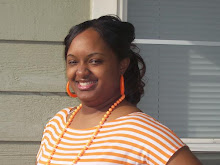As I sit in class bored out of mine, due to lengthy power-points and boring lectures, I begin to question myself on the ways I will reach my students. Will I lose my students in boring lectures? How will I motivate them into learning? Reading this chapter was very useful because it went into depth about how to increase motivation in your students and activate their prior knowledge.
Conley stated that it is very important that we meaning educators should get to know where our students are before we start introducing new topics. Getting to know where your students are will help you develop great lessons that will broaden their knowledge, because when teachers fail to do this, you waste valuable time teaching facts that students are already familiar with. Teachers should also become familiar with different experiences students have dealing with their families and the community. By knowing this helps motivate students because you can build on their prior knowledge. Building on student's prior knowledge makes learning fun and meaningful.
When teachers activate students prior knowledge, it is more than having students think about what they know. They need to learn how to use their prior knowledge to help them interact with the text to get the most out of learning. A tool teachers can use to see what they students know or what they are interested in learning are anticipation guides. Anticipation guides are a list of statements that students will respond to by agreeing or disagreeing. Anticipation guides can also be used to help students become familiar to the concept they are about to focus on. I know in my classroom I will use tools such as anticipatory guides and interest surveys in order to help me get to know what my students already know, so I can develop lessons that will increase motivation and activate their prior knowledge. I don't want to be known as the teacher that is boring!
Subscribe to:
Post Comments (Atom)

I agree that this was a refreshing chapter to read. I have a few questions for ya. I see you stated what Conley said about getting to know your students. My question to you is what will you do to get to know your student? Do you already have ideas or are you researching those ideas? I agree that teachers should get to know their students families and communities but how do you suggest going about doing this? Will you go to every students home during the summer time for a face to face visit? What about sending a letter or your teacher brochure to all the parents? Connecting to students personal lives can be difficult, but how would you do it?
ReplyDeleteI agree that teachers should get to know their students because it allows them to get an idea of where their students stand. Conley mentioned in the chapter that sometimes students feel less motivated in school because of situations in their home environment. I believe teachers should try their best to reach each of their students in order to understand why or why not he or she responds as she does in the classroom. Activating prior knowledge is also a way of reaching students and should be done constantly in the classroom. How do you think teachers should go about reaching out to their students?
ReplyDeleteThanks for the comment J.P., but as I mentioned in my blog I will use anticipation guides and interest surveys to get to know my students. Thanks for the suggestions on the brochures and news letters. I knew about them, but just forgot to put it on my blog. Thanks again for the comment.
ReplyDeleteThanks for the comment J, but I will try to reach these students by just communicating with them and giving them surveys to see what they like. I will also sent out letters to their parents and also make phone calls to get parent involvement. Who knows the child better than the parent?
ReplyDeleteShardae, great ideas and comments. My question is, what will you do with the wide range of prior knowledge. You and I are thinking alike, we don't want to bore students with facts they already know. What about the child that loves to read informational text and already knows a lot about the subject? What kinds of things can you do to keep that student interested while catching the rest of the students up? Just some food for thought!
ReplyDelete